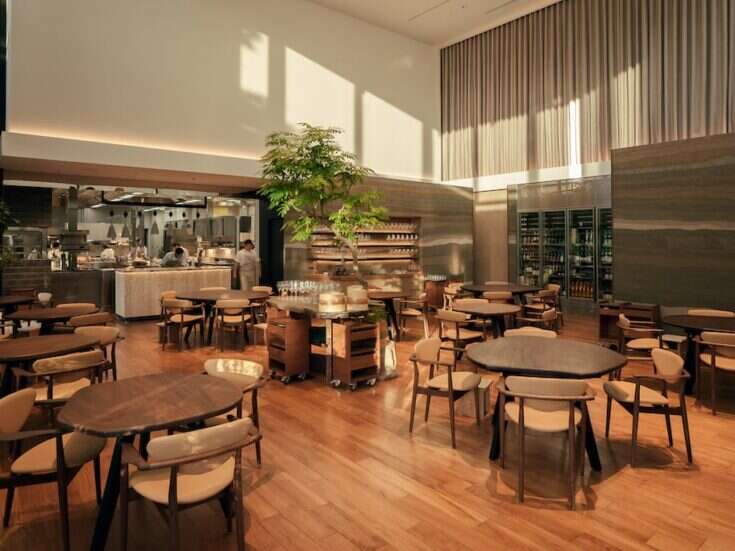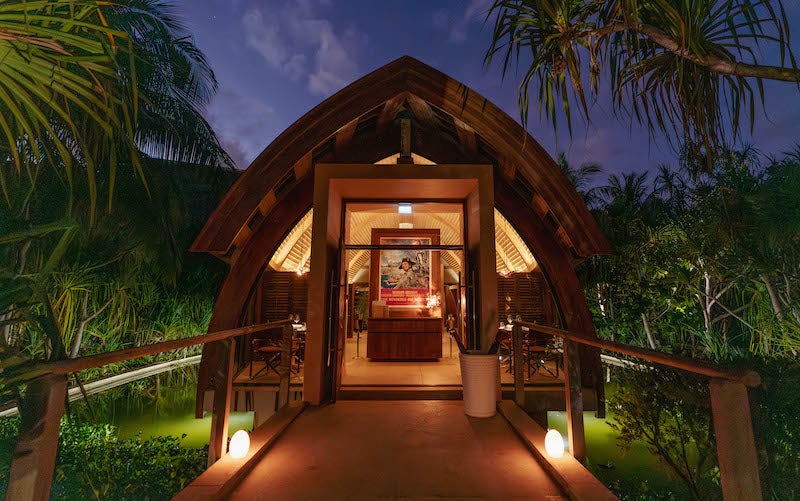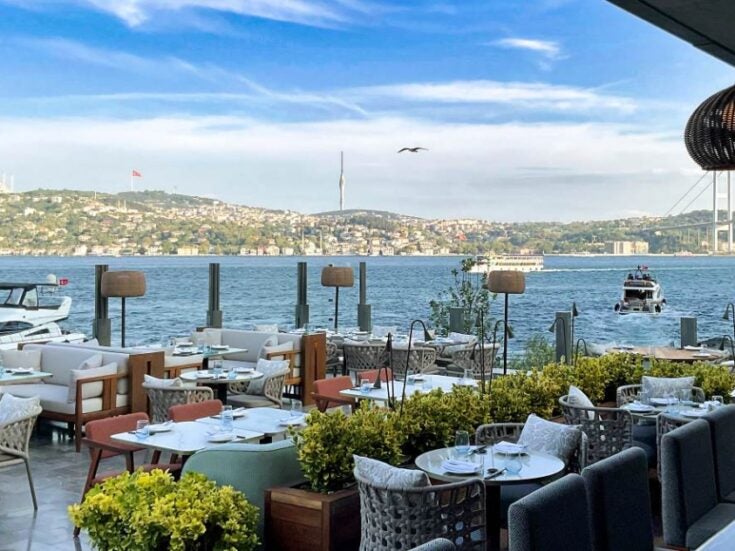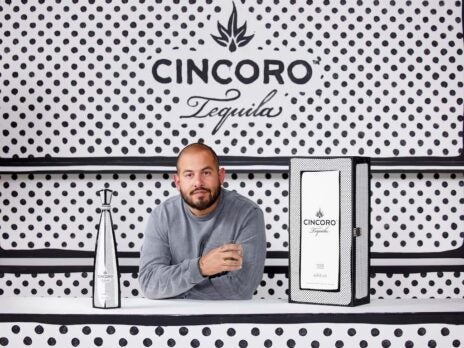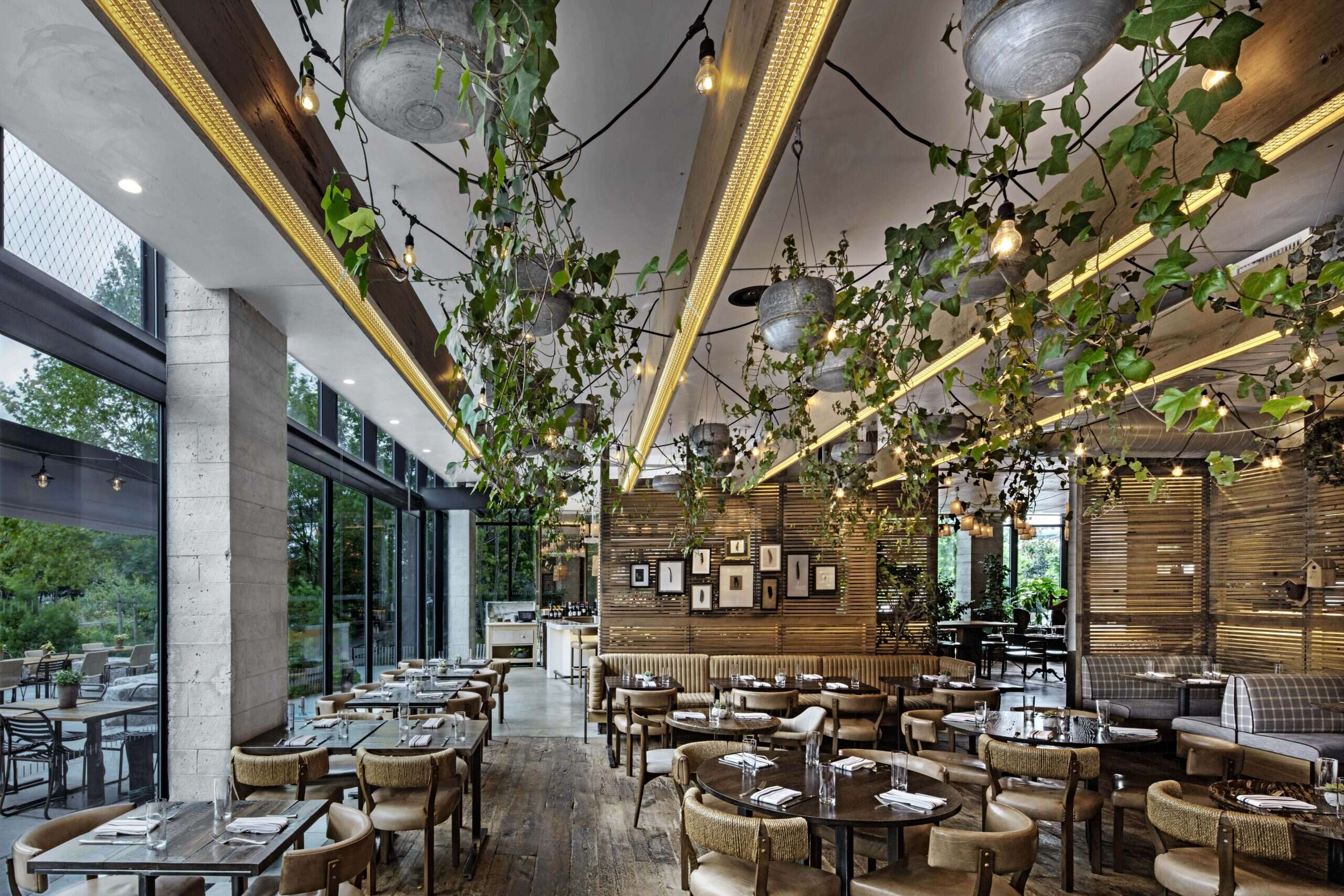
The ever-growing wave of sustainable fine dining is no secret, with chefs and restaurants recognizing their responsibility to join the movement. One chef firmly riding that wave is Denevin Miranda of 1 Hotel Brooklyn Bridge, part of an ever-growing collection of environmentally conscious hotels across the US and beyond.
As chef de cuisine at 1 Hotel Brooklyn Bridge, Miranda is responsible for showcasing 1 Hotel’s nature-driven ethos across its dining outlets, which includes The Osprey, Harriet’s Rooftop & Lounge and Neighbors Café. Miranda’s cuisine artfully reflects the diverse melting pot that is New York’s culinary scene, where you can enjoy the finest Chinese, Indian, Italian, Puerto Rican and Mexican food – the list goes on.
“We wanted to take contemporary American food and look at it through a lens of New York,” Miranda tells Elite Traveler over video call from The Osprey restaurant. “That’s our source of inspiration. [We look] at how we can show appreciation towards these cultures, in a way that I think is a language that bridges all over the world: food,” he continues. The result is a unique but intriguing menu where dishes such as Chinese sausage orecchiette sit comfortably next to the likes of jerk-marinaded rotisserie chicken.

Denevin Miranda is chef de cuisine at 1 Hotel Brooklyn Bridge / ©1 Hotel
As well as showcasing New York’s culinary microcosm, The Osprey’s menus are committed to seasonality and locality. While for many chefs, a move toward organic produce and local sourcing has been driven by consumer demands and industry trends, this farm to fork approach is second nature for Miranda.
Having grown up in Long Island, the chef spent his childhood watching his Filipino grandmother prepare food for his family and the wider community using organic ingredients grown in her own backyard. “I grew up experiencing … farm to table, organic food on the dinner table every night,” Miranda says.
And its this exposure to excellent hospitality and equally excellent food that has carried Miranda through his career to date. After studying at Johnson & Wales University, which is well known for its culinary arts program, Miranda went on to work at some of Miami’s finest luxury hotel restaurants, including Azul at the Mandarin Oriental and The Restaurant at The Setai, before eventually finding a position where his love for ingredient-led and environmentally conscious cuisine was matched at 1 Hotel Brooklyn Bridge in 2019.
While Miranda has been exposed to the wonders of fresh, local produce from a young age, it was during his time at premium resorts and hotels that the need for sustainable cuisine on a larger scale became even more apparent. “The whole point of luxury is about excess and abundance … and working in a lot of luxury environments, I was used to flying the best product from around the world to have it on my menu. Unfortunately, that is counteractive to sustainability,” Miranda says.
All of 1 Hotel Brooklyn Bridge’s dining outlets are doing things differently. Here, luxury is not measured in excess or exotic ingredients. Instead, it is measured in locality – to Miranda, there is nothing more luxurious than enjoying incredibly fresh, local produce and knowing exactly where the food you’re eating has come from.
With this in mind, Miranda and his team are dedicated to partnering with local farmers and producers who share the 1 Hotel ethos. Despite running restaurants in a decidedly urban setting, the scope of local produce that Miranda manages to procure is impressive: “We’re very fortunate to have farms all around us in the tri-state area from Pennsylvania to upstate New York and even parts of New Jersey,” he says.
[See also: The Most Iconic Restaurants of the Elite Traveler Era]
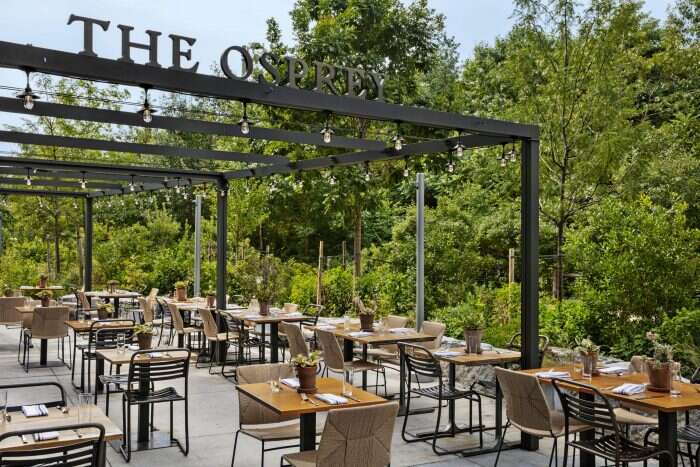
The Osprey’s menus are committed to seasonality and locality / ©1 Hotel
Even inside the city, noteworthy work is being done to optimize all available growing space and ensure fresh, local crops for New York’s many high-end restaurants. “We are working with rooftop farms here in New York, as well as indoor farms, [which] has become a big new industry. Utilizing the technology we have now to do hydroponic and indoor farming is incredibly sustainable,” Miranda explains.
And the beauty of sourcing such fresh, high-quality produce is that the ingredients do the talking with little intervention. For example, The Osprey’s spring menu featured a dish of razor clams that had been foraged just off the northern shore of Long Island, a mere two hours from the hotel.
“Razor clams are such a beautiful ingredient,” the chef notes. “We prepared them really simply, using some great flavor combinations to emphasize the freshness and the beauty of the ingredient.”
Waste and carbon emission management is another key factor of Miranda’s. Food waste and overordering are among the biggest plagues in hospitality; to minimize this 1 Hotel Brooklyn Bridge, along with every other 1 Hotel destination, monitors every piece of waste that leaves the building. Everything is carefully separated in order for it to be correctly recycled or composted.
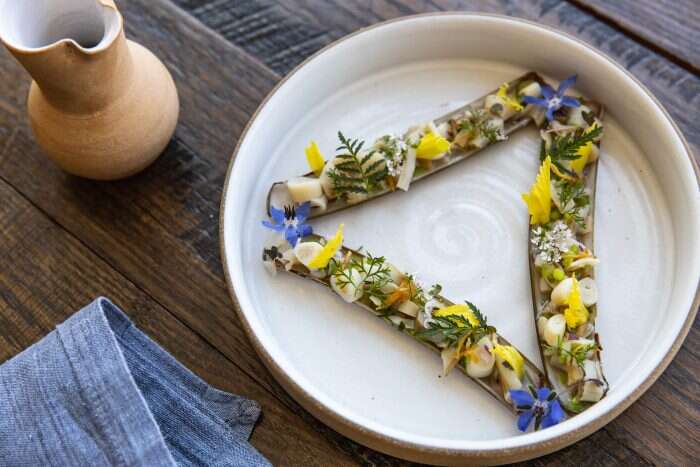
The Osprey’s spring menu featured a dish of razor clams that had been foraged just off the northern shore of Long Island / ©1 Hotel
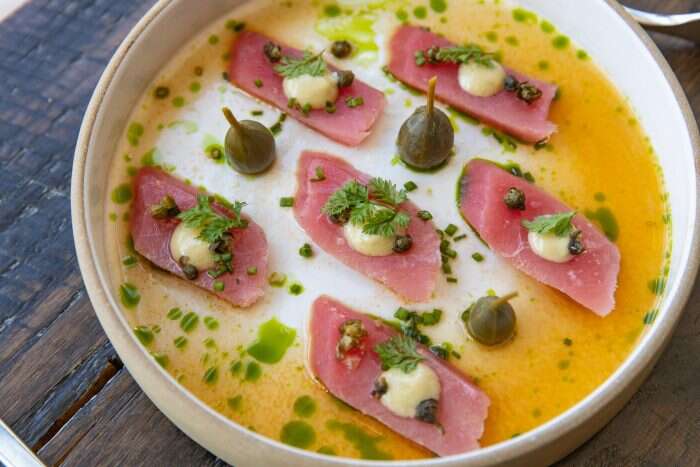
Tuna Crudo dish by chef Denevin Miranda of 1 Hotel Brooklyn Bridge / ©1 Hotel
Even the format of the menu is designed to limit waste. Each seasonal menu is separated into ‘Small’, ‘Medium’ and ‘Large’ plates which, according to Miranda, empowers guests to be less wasteful by only ordering what they need.
Reassuringly, Miranda is convinced that the majority of the industry is also well on the way to acting as sustainably as possible, if they’re not already there. “There are restaurants like The Osprey … around the world, that have started to pivot towards more sustainable initiatives, ethos and mission, and that’s creating a platform where we’re showcasing how our industry can move forward and showing that this is what’s possible,” he says. “And I think more restaurants and more industries will have to change to meet the needs of the future because there’s one world and we have to take care of it.”
It is clear that 1 Hotel is planning to make real change, not just operate a greenwashing exercise. Both Miranda and group CEO Arash Azarbarzin, who spoke to Elite Traveler earlier this year, agree that the only way to move forward is through collaboration, not gatekeeping sustainability secrets for private profit.
Just as Azarbarzin will happily call industry colleagues to share environmental best practices, Miranda is keen to publicly celebrate potential competitor restaurants for their inspiring efforts: “In New York City, Eleven Madison Park [has changed] to a completely plant-based menu to be more sustainable … I think that has a really beautiful message,” he says. There’s no denying that the luxury hospitality industry has a way to go in becoming fully sustainable, but with organizations like 1 Hotel at the helm, it’s well on its way.
